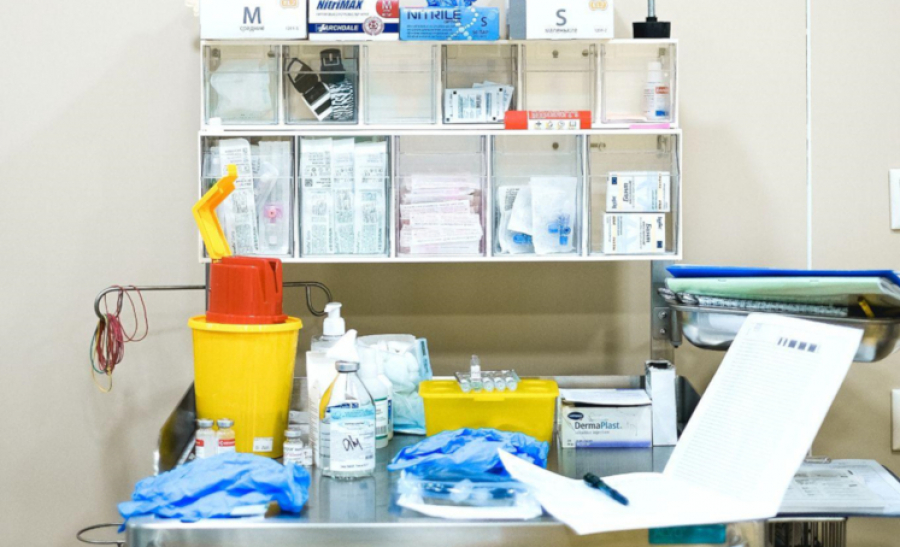Laboratory medicine has long been integral to healthcare delivery in the United States and internationally. Diagnosis equipment has been around since antiquity, and modern medical laboratories have been around since the early twentieth century.
Today is a great time for new medical labs to expand and thrive. But don't rush into opening a medical lab without first acquiring the necessary equipment. More than just enthusiasm and medical expertise are needed to run a lab successfully. As a laboratory worker, you'll also need to be familiar with the business side of things.
Continue reading to learn how to launch a profitable medical lab on a shoestring!
1. Begin With Research
A new medical lab suggests an existing belief in the importance of the investigation. Now is the moment to put your research talents to the test, as this is one of the most crucial stages in establishing a new laboratory.
Every decision must be well thought out, from lab supplies, lab wear, furniture, smart lock for commercial door of your lab, to medical lab software and even bills. The fewer hiccups you encounter while setting up your laboratory, the more research you should perform beforehand.
Understanding the research process from the outset is crucial. Any market research, like your scientific research, should begin broadly and gradually narrow.
First, settle on a focus for your lab. You might already have an idea of what you want to specialize in, or you might want to weigh your possibilities first. Whatever the situation may be, you should familiarize yourself thoroughly with the laboratory's area of specialization and the expected performance of that specialty in the market.
2. Credentialing for Enterprises
Accreditation for their businesses is often the easier of the two for laboratory owners. Accreditation is necessary for all businesses, whether you are starting to sell special marine valves types of other industrial tools, not only labs.
When it comes to obtaining a business license, the regulations can vary widely from one location to the next. This can be seen in the fact that some municipalities have no requirements for obtaining a business license, while others have detailed regulations.
Look into the local and state legislation governing business certification to avoid any potential legal issues. You might seek the advice of a business consultant or an attorney if you feel you need further assistance.
3. Budgeting and Financial Matters
Money management is a major challenge for many first-time medical lab entrepreneurs. You probably want to open a lab because you deeply appreciate research and science, but that doesn't imply you're automatically good at managing the financial side of things.
You shouldn't let the fact that you don't see yourself as the "business type" prevent you from thinking about starting a medical lab.
Unfortunately, this means you'll have to devote more time to learning about and applying the most effective laboratory management techniques. Having someone on your team with business acumen is also a smart idea.
4. Laboratory Space And Instruments For Medical Use
Convention dictates that analytical sampling and analysis itself occur in different locations. Remember that you'll need a dedicated space for taking samples and running lab tests while looking for a location. Without a doubt, medical research facilities need substantial funding.
Spending on things like lab furnishings, fixtures, and renovations is inevitable. This is why many up-and-coming medical research facilities partner with established ones such as reputable medical plastic injection molding companies. While more well-known research facilities focus on medical analysis, they are responsible only for patient acquisition.
Some important stuff you need to take care include:
- Furniture for the receptionist and visitors, a shoe rack outside the entrance, and a water dispenser.
- Some number of individual treatment areas in a hospital.
- Bathroom
- Regulatory and office space.
- Supplies for a hospital operating room.
- Furniture such as tables, chairs, and couches are used in hospitals.
- Chilled storage units.
- Sonograms and electrocardiograms (depending on the list of services).
- Thermometers and pressure gauges.
- Immediately revealing test kits.
- Items such as test tubes, syringes, cleaning wipes, bandages, and clamps are needed for a successful laboratory.
5. Location
In addition to your personnel, your location is also crucial. Putting some serious thought into picking a location that would be easily accessible to potential customers is crucial. In addition to being in an easily accessible location, the space should also feature eye-catching signage.
A laboratory placement close to a medical facility can increase foot traffic to both facilities. You may team together to offer diagnostic services to the adjacent hospital. It also makes sense to put a medical lab in a residential area.
Conclusion
Inevitably, significant investments of time and resources will be required to launch a new medical laboratory. Although taking the easy way out is not advisable, there are many opportunities to save costs and speed up the process.
Investing in the correct equipment and personnel ensures that your new lab is as productive and efficient as possible from day one to benefit your business and your clients.
